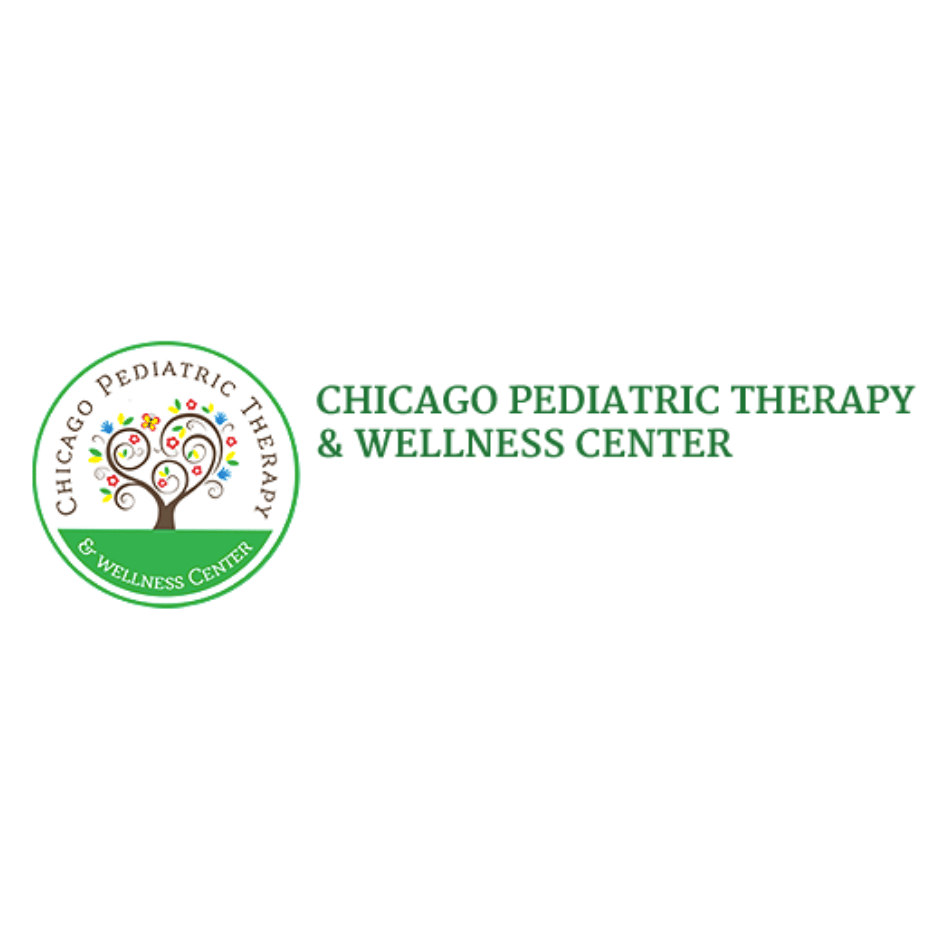5 Highly Recommended Chicago Child Therapists
Childhood trauma doesn't always look like what you'd expect. Sometimes it shows up as tantrums, school refusal, or a child who's suddenly become a stranger. When painful experiences overwhelm a child's developing nervous system, they need more than basic counseling.
That’s where Watch Hill Therapy comes in. Our Chicago-based child therapists specialize in trauma, with advanced training in evidence-based methods to help your little one here. Our team combines genuine compassion with research-backed trauma care to offer your family the support you’ve been seeking.
Jump to a therapist
Kaitlyn Rippel: Best for children with school challenges
Joseline Gonzalez: Best for neurodivergent children
Aryeh Sova: Best for child psychological assessments
Chicago Pediatric Therapy & Wellness Center: Best for comprehensive autism care
Dr. Amer Smajkic: Best for child psychiatry
Meet our Chicago child therapy specialists
Kaitlyn Rippel
Best for children with school challenges
Kaitlyn is a therapist whose background as a school social worker gives her exceptional insight into the academic and social struggles children face. She specializes in working with children experiencing trauma, grief, attachment wounds, and autism spectrum disorder, with a particular passion for supporting children with ASD who are also navigating mental health challenges. Kaitlyn uses a warm, strengths-based approach that blends play therapy, mind-body integration, and practical skills to help children thrive both in and out of the classroom.
Credentials: Licensed Clinical Social Worker
Location: 2150 W. Lawrence Ave., Chicago, IL 60625 & 25 E. Washington St., Chicago, IL 60602
Virtual therapy?: Yes, in addition to in-person
Joseline Gonzalez
Best for neurodivergent children
Joseline is a bilingual (Spanish/English) therapist who brings deep expertise in supporting neurodivergent children and those impacted by complex trauma. Her specialization in intellectual disabilities, ADHD, ODD, and developmental differences makes her uniquely equipped to meet children exactly where they are. Joseline creates individualized treatment plans that honor each child's unique brain wiring while building skills for managing life's challenges with greater ease.
Credentials: Licensed Clinical Professional Counselor
Location: 25 E. Washington St., Chicago, IL 60602
Virtual therapy?: Yes, in addition to in-person
Other local resources for child therapy in Chicago
While we’re passionate about supporting children and their parents, there are some situations where we may recommend seeking other kinds of services. Below, we’ve curated a list of other trusted local providers so you and your little one can get the care you need.
Aryeh Sova
Best for child psychological assessments
Depending on your child’s circumstances, it may be worthwhile to pursue a formal psychological assessment for conditions like ADHD, learning disabilities, language and processing delays, and more. Aryeh Sova is a local clinical psychologist who specializes in comprehensive assessments for children. Unlike other psychologists who provide assessments as a stand-alone service, Aryeh also provides therapy, giving him a well-rounded perspective when conducting evaluations.
Credentials: Licensed Clinical Psychologist
Location: 2835 North Sheffield Ave, Suite 221, Chicago, IL 60657
Virtual therapy?: Yes, in addition to in-person
Chicago Pediatric Therapy & Wellness Center
Best for comprehensive autism care
Our team of child therapists is deeply skilled in supporting children on the autism spectrum. However, depending on your child’s unique needs, they may benefit from additional services. Chicago Pediatric Therapy & Wellness Center provides services like speech therapy, occupational therapy, and ABA therapy that can be complementary to your child’s work in psychotherapy. This practice is unique because it works with children of all ages (beginning in infancy) and has a team of multidisciplinary professionals under one roof.
Credentials: Various
Location: 1739 N Elston Avenue. Chicago, IL 60642
Virtual therapy?: Services are primarily in-person at the clinic or in-home
Amer Smajkic
Best for child psychiatry
Dr. Amer Smajkic is a seasoned local psychiatrist who has been serving the Chicago area for over 30 years. Unlike many other psychiatrists, he is double board-certified in both general psychiatry and child and adolescent psychiatry, making him uniquely qualified to work with young people. He is also a cognitive behavioral therapist, which lends a deeper understanding of behavioral issues to inform his medical management services.
Credentials: Medical Doctor, Board Certified Psychiatrist
Location: 233 E Erie # 802, Chicago, IL 60611
Virtual therapy?: Yes, in addition to in-person
What sets our practice apart from other child therapy providers in Chicago
With so many child therapy providers in the area, here’s what makes our practice unique:
Trauma-specialty practice with clinicians trained in cutting-edge therapeutic modalities
Evening and weekend availability with flexible hybrid (in-person or telehealth) options
Convenient downtown Chicago location easily accessible by public transportation
Diverse team of clinicians who understand how trauma intersects with culture, identity, and systemic oppression
Commitment to relational, deeply human-centered therapy that sees beyond symptoms to the whole child
Neurodivergent-affirming practice with expertise in autism spectrum, ADHD, and intellectual disabilities
Bilingual services available for Spanish-speaking families
Areas we support children and families with
Trauma recovery: Sexual abuse, physical abuse, emotional abuse, neglect, witnessing domestic violence, complex developmental trauma
Behavioral and emotional regulation: Tantrums, outbursts, aggression, self-harm, impulsivity, difficulty managing big feelings
School-related challenges: School refusal, bullying, peer conflicts, academic struggles, difficulty concentrating, social skills development
Family transitions: Divorce, blended families, grief and loss, moving, parental conflict, major life changes
Mental health concerns: Anxiety, depression, PTSD, panic attacks, suicidal ideation, mood swings, isolation
Neurodevelopmental differences: Autism spectrum disorder, ADHD, intellectual disabilities, learning differences, sensory processing challenges
Attachment and relationship wounds: Difficulty trusting caregivers, withdrawn behavior, fear of abandonment, trouble connecting with peers
Identity and developmental struggles: Low self-esteem, body image concerns, identity exploration, feeling misunderstood or different
What to expect from the therapy process
-
We begin with a no-pressure phone consultation where we learn about your child's struggles and your family's needs. This conversation helps us determine if we're the right fit and match you with a clinician whose expertise aligns with your child's unique situation.
-
Your child's first session is a gentle exploration where the therapist builds rapport, learns about your child's world, and gathers information about what's been happening. Parents are typically involved in this session to share developmental history, concerns, and goals for therapy.
-
After the assessment, we collaborate with you to develop a personalized treatment plan that addresses your child's specific needs. We discuss the therapeutic approaches we'll use, how often you'll meet, and what success might look like for your unique family.
-
Consistent sessions become a safe haven where your child learns to understand their feelings, build coping skills, and process difficult experiences. We maintain ongoing communication with parents to ensure therapy supports the whole family system and make adjustments as your child grows and heals.
FAQs about child therapy
-
A dysregulated or traumatized child may not be able to tell you what they’re feeling, what’s happened, or what they need, and often will communicate instead through behaviors that can be confusing or distressing to parents or caregivers.
This might look like:
Aggressive or physical behaviors like rough play
Sudden emergence of intense emotions without a clear cause
Difficulty sleeping, maintaining bathing & grooming behaviors, concentrating, or eating
Bed wetting
Regressive behavior
Fear & being easily startled
Dissocation, withdrawal, daydreaming, or shut down
School refusal
Excessive shyness, anger, worry, sadness, shame, or guilt
Low self esteem
Preoccupation with sexual behavior
Physical/somatic symptoms like headaches, stomach aches, or skin issues with no clear medical cause
It’s important to note that the signs and symptoms of trauma in children can be subtle. Sometimes, children may not exhibit any right away. In other cases, there can be marked changes in their behavior. Some children internalize their symptoms, and others externalize their symptoms, so it’s crucial to be in tune with your child’s behavior (even slight changes) and seek support if you’re concerned.
-
Depending on the developmental age of the child at the onset of trauma, symptoms and signs will look different and may be more difficult to interpret. Trauma is always difficult to process verbally, and particularly in children this is difficult given the impact of the trauma on their development and likely a lack of awareness of the trauma. Children look to others around them to know how to process emotions and respond to distress, and if they don’t have examples that align with their experiences they may become overwhelmed and turn inward or shut themselves off entirely. Play therapy is a way for children to express and work through their experiences and emotions at whatever level of consciousness they present. Play therapy also reinforces the child’s control over their own narrative and agency and choice in what is shared which can inherently be healing.
-
We utilize a reflective, relational approach meaning that rather than doing therapy “to” or “at” you, we are engaging in relationship with you in a way that allows patterns and themes interjecting from the past to enact themselves in the room with us in the present.
Rather than only utilizing a “top down” approach where we analyze and engage cognitively, or only utilizing a “bottom up” approach where we would only pay attention to the somatic and emotional experience, we combine these in order to engage all parts of the person in front of us. We believe that this “wholeness” is the natural human state, and this is what trauma often takes from us by fragmenting and dissociating parts of our humanity from us.
Complex trauma survivors often do not have complete memories or verbal narratives to call from, but their traumatic experiences are still stored in their bodies and find ways to speak to them. But engaging fully in the somatic and experiential is not healing without being in connection with other parts of the self, the present moment, and in relationship with a trusted other. The people who we work with have often been harmed in relationship, so it is through relationship that we work towards healing.
There is not a single step-by-step process to this type of work, because every individual has different wounds and has different needs to be met in order to heal those wounds. We firmly believe that while we may be experts in how to hold space for our clients and track the process of their healing, our clients are the experts on themselves and their experience, and it’s crucial to reinforce their agency in the process of their healing.
Our approach is one of reflection, curiosity, engagement, patience, and pacing. We work to build a safe, secure, and consistent relationship to process things within and through, and this is something that takes time in order to do well. We value inquiry for the sake of inquiry, and hold self-reflection and narrative building as inherently healing.
We believe that human wellness is linked to human connection, not just environmental stress or biology.
-
We work with children of all ages, from young children through adolescence. Our therapists are trained in age-appropriate therapeutic approaches, including play therapy for younger children and more talk-based modalities for older children and teens. We tailor our approach to match your child's developmental stage and needs.
-
Children can benefit from therapy at any age when they're struggling emotionally, behaviorally, or socially. Signs your child might benefit include:
Prolonged sadness,
Anxiety that interferes with daily life,
Behavioral outbursts,
Experiencing trauma,
Big transitions, like adoption, moving, or divorce, and
Difficulty functioning at home or school.
Trust your instincts. If you’re not sure whether therapy is right for your child, the best way to move forward is by scheduling a free consultation where we can speak directly and offer our professional recommendation.
-
The "best" therapy depends on your child's unique needs, experiences, and developmental stage. We tend to blend different methods, including play therapy, DBT skills, somatic therapy, and cognitive-behavioral techniques, to create individualized treatment that meets your child where they are.
-
The length of treatment varies widely. Some children benefit from short-term work (3-6 months) focused on specific skills or navigating life transitions, while others—particularly those healing from complex trauma—may engage in longer-term therapy. We regularly assess progress with families and adjust treatment length accordingly, always prioritizing what serves your child.
-
Parents are essential partners in their child's therapy. We typically include parents in the initial assessment, provide regular check-ins to discuss progress, and offer guidance on supporting your child at home. For younger children, parent sessions may be more frequent; for teens, we balance confidentiality with keeping parents informed. Our approach honors the parent-child relationship as central to healing.
-
Yes, child therapy is typically covered by insurance. We currently accept Blue Cross Blue ShieldPPO insurance, and for other insurance plans, we can provide you with a superbill (detailed receipt) that you can submit to your insurance company for potential out-of-network reimbursement.






